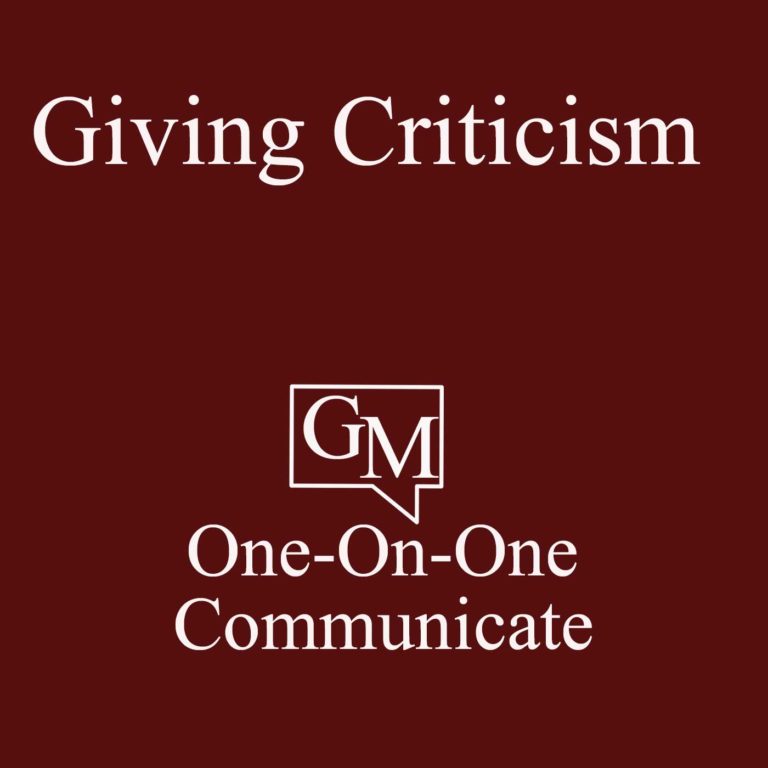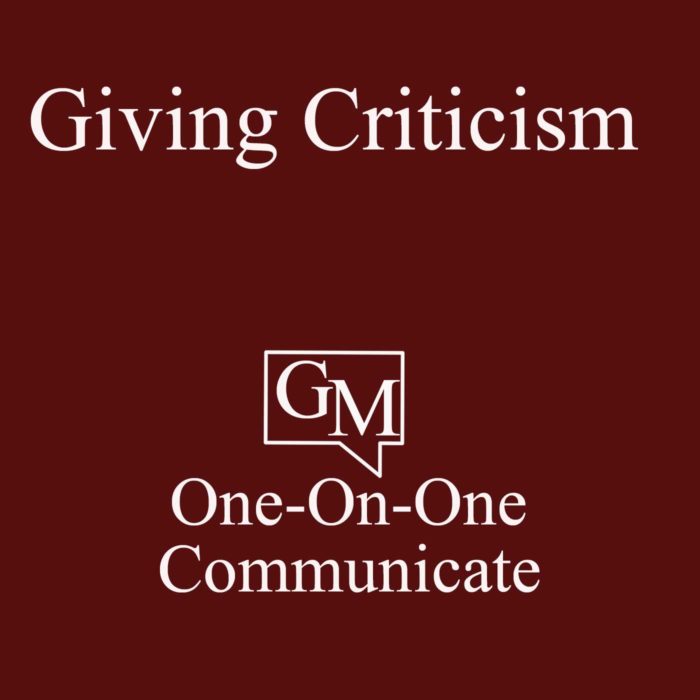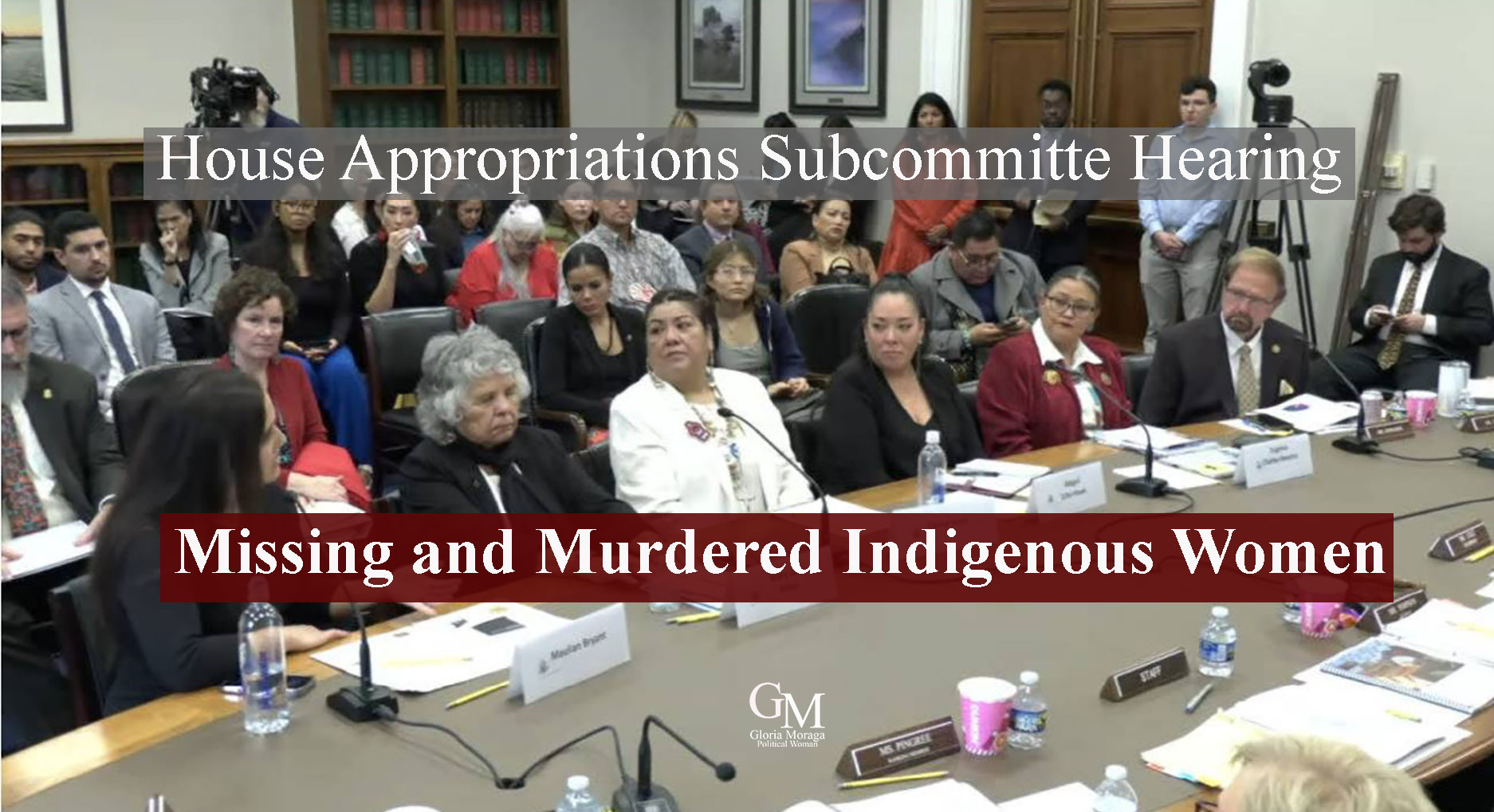Giving Criticism Is not As Easy as It Sounds

Giving criticism is not as easy as it sounds.
If you care about your co-workers, you don’t want to hurt their feelings. But there are times at work when a critique is required. Like the annual review. While I have delivered dozens of reviews during my 10 years as a manager, not all of them were dramatic, but all were stressful.
I’m Gloria Moraga, One-On-One – Communication in this crazy digital age.
Please subscribe and share my podcast. Gloria Moraga – One-On-One. I need listeners.
Continuing my series on Work Communication – Wanting Ice Water.
This is Part Two of Criticism – Giving Criticism Is not Easy!
The job was responsible for managing news content. I was excited about driving the news stories the station was going to cover each day.
But I was not thrilled about managing 20 news staff members—the reporters. The people were responsible for gathering the news.
It was, to put it nicely, a nightmare.
For a time, I was responsible for the yearly work evaluations for reporters and photographers.
Eventually, we hired a Chief Photographer, and I handed those responsibilities to him.
Here was the issue, whenever there was a problem, a complaint about a reporter or a photographer, I was responsible for documenting the problem and trying to solve the problem.
These are grown, people.
They can solve their own problems. Really, just “Get Along.”
The documentation was the killer.
Human Resources required paperwork. And I needed to make a note of what occurred so we could keep track of quote “problem employees.”
Or even employees with problems.
All this documentation would then be used for the employee review. There was the annual review. Sometimes, when there were continual problems, we had a sit-down discussion about an employee’s actions.
Criticism Flows Both Ways
Yes, this is Part two of “Criticism.” Because after I finished Part One, I realized that I didn’t talk about criticism from the person’s point of view giving the criticism.
If you missed Part 1 of Criticism please listen and comment.
Giving a critique of one’s work is one of the most challenging communication exercises I’ve ever been through.
I really tried to like my direct reports.
Honestly, some of the reporters I managed had not welcomed me to the station.
One reporter said to me once, “Why don’t you get a job in Los Angeles? They hire Mexican’s down there.”
I responded, “I hate LA, too much smog and too many fake blonds.”
Yes, we really talked that way.
Now we would all be suing each other left and right.
Well, I ended up being the direct manager of that reporter.
And I tried like hell to be fair and honest with her.
I was. But we were not friends.
On the other hand, I was friends with many of the people I ended up managing.
That was even more difficult.
This Really Happened
I will share two examples of how difficult it is to communicate and critique people.
All people. Like em, dislike em. It’s challenging to criticize.
While working as managing editor at ABC News in Sacramento, I wrote a review for one experienced male reporter. The general manager and the news director reviewed the document and made it more critical.
I said to my boss are you kidding. We are too hard on him; he does not need this more improvement.
They said no, we want you to do this because all his past reviews have been good, and we want to lower the bar and possibly not renew his contract when it comes up for renewal.
Honestly, the review wasn’t bad. But it wasn’t honest. I said, I will do this, but I hate this. My bosses said, welcome to management.
The reporter and I are in my office, and the review is going along; we discuss his stories in the last year.
How can we make the stories better? I want to give everybody time to enterprise serious journalism and news coverage.
Fine. Fine.
Then I handed the reporter the review document. The written review is a form that is filled out.
Some checkmarks near these words: excellent, good, fair, or needs improvement.
And I have attached my longer review on a separate word document.
Temper – Temper
When the reporter saw that he had a couple of good and fair marks, he exploded.
What the hell is this? he screamed. And this and this.
I said, please read what I wrote; it explains the good and fair.
Bullshit, he screamed.
Then he stood up, picked up the written review, ripped it in half, crumbled it in his hands, and then threw it at me. He was too far away, almost at the door, so the ripped, crumpled document landed on my desk.
He slammed out. Everybody in the newsroom heard and all even watched him walk away and waited for my door to open.
What happened next is key.
The reporter marched up the hallway to the General Managers’ office and complained about MY review.
And the GM changed the review.
It reverted to my original review.
I looked like a jerk.
The General manager was a hero.
And this basically made me look like a weak news manager.
Wow!
My experience with giving criticism was a farce. It wasn’t real constructive criticism.
And the way the reporter handled the criticism was a classic case of taking criticism poorly.
The job of being a middle manager really does suck.
You are constantly trapped in the middle. Between upper management and your direct reports whom you care about.
At the university, I was also told by my manager NOT to give staff members all Excellent reviews. He said there has to be room to move up.
I was new at the university, so I did what I was told.
The Crying Jag
My first one-on-one review was with my favorite person/staff member.
She received some “Excellent, many good, and two “need improvement.”
It was a B-plus review.
When she read the document, she began to sob.
Okay, I really liked this woman. Later, I grew to love her like a baby sister.
I said, what’s wrong?
She said she was used to receiving all excellent marks.
She had never received such a bad review.
Two reviews. Two different reactions to being criticized or critiqued.
Both were horrible experiences for me. The one doing the criticizing.
And not ideal reactions from either of them.
When I was demoted by the Bullies at Sac State.
I was relieved. It was unfair. But I was so happy that I wasn’t going to be managing people anymore.
No More Reviews!
Finally, here is some advice from INC.com.
It’s 7 Tips on How to Give Criticism.
My favorite suggestion is #7. TALK TO EACH OTHER!
1. Be Straightforward
2. Be Specific
3. Criticize the WORK, not the Person
4. Don’t Tell Someone they are Wrong
5. Say Something Nice – Compliment
6. Make Suggestions – Don’t Give Orders
7. Have a Conversation
I’m Gloria Moraga, Accepting Criticism – Giving Criticism.
Whatever way the critiques are flowing, listen to them, learn from them and keep talking, One-On-One.
Be Safe.




